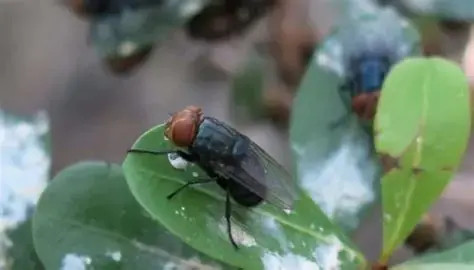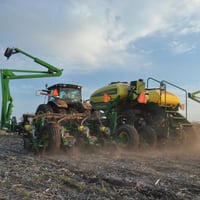Mexico has confirmed eight new cases of New World screwworm (NWS) in Tamaulipas, which borders...
U.S. Confirms First NWS Human Case

The first case of New World Screwworm (NWS) was confirmed in a human in Maryland by the Centers for Disease Control (CDC) in coordination with the Maryland Department of Health.
A report from the director of communications for the Department of Health and Human Services said the case was in a patient who returned to the U.S. from travel to El Salvador and was confirmed by CDC. He said the risk to public health in the U.S. from this introduction is very low. The health status of the patient was not disclosed.
LIVESTOCK GROUPS SPEAK UP
The concern among livestock groups about the threat of NWS to the U.S. cattle herd continues, as U.S. Secretary of Agriculture Brooke Rollins recently announced construction of a $750 million facility to produce sterile NWS flies to help fight off the pest.
National Cattlemen’s Beef Association (NCBA) CEO Colin Woodall said: "NCBA is aware of the New World Screwworm case detected in a person traveling from abroad into Maryland. The case was quickly identified and handled by the CDC in accordance with their protocols."
NWS larvae only feed on live tissue of warm-blooded animals. It is more common in livestock and other animals and rarely found in humans; thus, humans are not considered to be at high risk. NWS is also not a contagious disease, according to Cody Egnor, veterinary medical officer with USDA's Animal & Plant Inspection Service.
"Female flies deposit eggs in wounds and some mucus membranes," he said. "Humans could have eggs laid in wounds if they are not covered and are in contact with the flies."
Untreated animals infested with NWS through a wound can die within two weeks without treatment, and newborn animals are highly likely to die if not protected in areas where the pest is found in the environment.
"Based on what has been shared with state animal health officials, we do not see any elevated risk to the livestock industry at this time," Woodall said. "We appreciate the diligence of human health authorities. This case was quickly addressed thanks to existing protocols, and we are thankful for the ongoing coordination between the CDC, state departments of health, state animal health officials, and USDA."
TRANSPARENCY CONCERNS BROUGHT FORWARD
Bill Bullard, R-CALF USA CEO, is not only concerned about the NWS human case, but also about the sharing of information regarding the case. Though the case was confirmed by the CDC, no information was released to the public until Reuters news agency recently reported it.
"We are deeply concerned that if the publicly disseminated Reuters report is accurate, including its implication that only select industry participants were timely informed of the detection of this devastating pest in the United States, then our governmental system is fundamentally broken," he said in a news release. "Independent U.S. livestock producers rely exclusively on the USDA to protect the health and safety of their livestock herds against the introduction of foreign pests and to protect the integrity of their U.S. livestock markets by preventing manipulation."
Bullard further stated that the information about the NWS human case should be shared transparently with all industry participants, including producers.
Food and Drug Administration Commissioner Marty Makary stated following the approval of certain livestock drugs to be used to fight NWS that aren't labeled for use against an infestation: "Our priority is to safeguard both animal health and the nation's food supply. FDA is acting swiftly and responsibly to help ensure we have the necessary tools to prevent and control New World Screwworm, minimizing risks to agriculture and public health."
EDITOR’S TAKE:
This discussion sounds vaguely familiar, remarkably similar to when the Bird Flu hit poultry flocks in the U.S. initially. You may recall that it was isolated and not much of a threat. Then it spread to other flocks, then to other species and finally to humans. We do not intend to raise alarm bells, but we do believe NWS can present a profoundly serious threat to our cattle industry if efforts to control it are not successful. And we certainly hope that the experts are correct, and humans are not at any great risk. USDA is doing everything in their power to keep this from becoming a severe problem and we support those efforts 100 percent.
You can help keep your customers protected by introducing them to CAD Protect. The program is designed to fill the gap left by OEM warranties when a truck is used for agricultural purposes. It is a great program that can be beneficial to your dealership and your customers.








